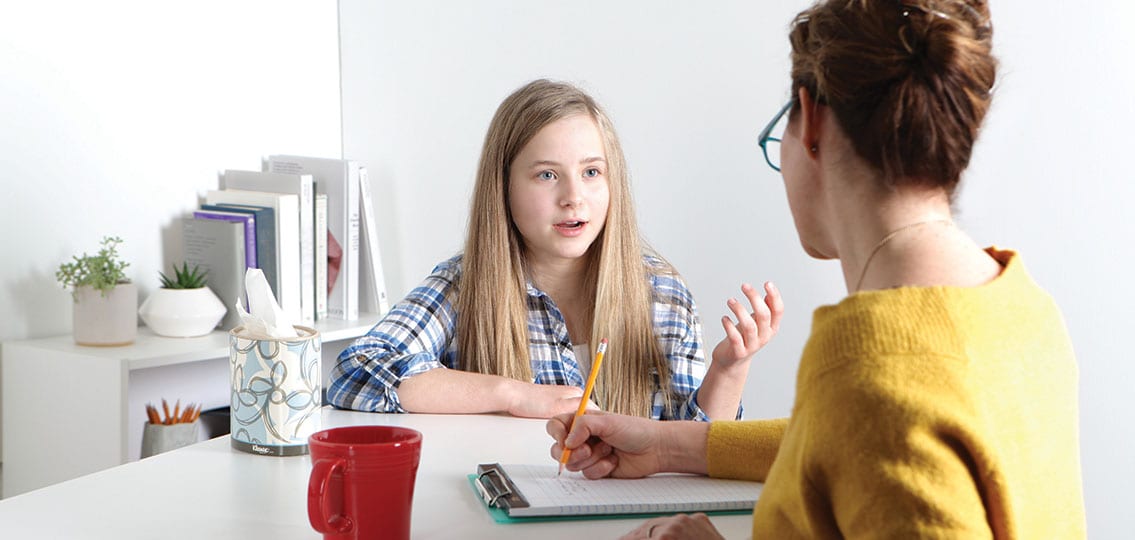How counselling for teens empowers emotional intelligence
Discovering the Favorable Impact of Young Adult Treatment on Mental Wellness
The significance of mental health throughout adolescence can not be overemphasized. Many teens deal with unique difficulties that can affect their psychological well-being. Treatment uses an organized method to deal with these concerns, cultivating strength and self-awareness. Numerous restorative techniques provide to various needs, giving tools for dealing and analytic. As society significantly identifies this need, the concern stays: just how can these healing interventions form the future of teen mental health and wellness?
Recognizing the Value of Mental Health in Adolescents
While numerous adults might neglect the psychological health challenges dealt with by adolescents, understanding these issues is crucial for promoting their advancement. Adolescence is a pivotal stage identified by considerable psychological, psychological, and social adjustments. Throughout this period, young people browse identity formation, peer connections, and academic stress, all of which can affect their psychological wellness. Studies indicate that mental wellness issues, if left unaddressed, can lead to long-term repercussions, such as academic underachievement and stretched relationships.
Understanding of psychological wellness throughout teenage years promotes very early treatment, allowing teens to create healthy coping systems. Favorable mental health and wellness not just enhances self-confidence yet additionally supports strength in dealing with life's difficulties. By focusing on psychological health and wellness, educators, households, and communities can produce helpful atmospheres that urge open dialogue, lower stigma, and assist in accessibility to needed resources (therapists for teenagers near me). Inevitably, an alternative strategy to teenage psychological health and wellness lays the foundation for healthier futures
Usual Problems Attended To in Teen Treatment
Teen treatment often deals with a variety of typical problems that adolescents encounter, showing the intricacies of this developmental phase. One substantial concern is anxiousness, which can show up as social anxiousness or basic anxiety problem, frequently originating from social expectations or scholastic stress. Another common concern is anxiety, identified by feelings of despair, despondence, and withdrawal from activities.
Additionally, lots of teenagers grapple with identity exploration, including sexual orientation and self-image, which can bring about confusion and distress. Household dynamics, including disputes and interaction breakdowns, also play a critical role in a teen's psychological well-being.

Furthermore, the impact of peer stress and bullying can result in feelings of isolation and reduced self-esteem. Chemical abuse is an additional crucial issue that therapists frequently address, as teens may look for escape from their psychological struggles. Jointly, these obstacles highlight the demand for helpful treatments throughout this transformative period.
Different Restorative Approaches for Teenagers
Numerous restorative techniques are offered to attend to the unique needs of teens, each offering unique techniques for cultivating emotional growth and resilience. Cognitive Behavioral Treatment (CBT) is often employed, aiding teens determine and alter negative idea patterns. Dialectical Behavior Therapy (DBT) concentrates on psychological policy and social performance, particularly valuable for those experiencing intense feelings.

Additionally, art and play therapy give innovative outlets for self-expression, allowing teens to articulate feelings that could be hard to share vocally. Group treatment our website also works as an encouraging environment where teenagers share experiences and establish social abilities.
Mindfulness-based therapies advertise present-moment awareness, aiding in stress reduction and emotional management. Family treatment addresses dynamics that might add to a teenager's psychological wellness obstacles, fostering much healthier interaction within the family members system. Each method can be customized to suit specific requirements, helping adolescents navigate their distinct difficulties properly.
Advantages of Therapy for Emotional Resilience
Therapy gives many benefits for teens seeking to build emotional durability, especially as they navigate the intricacies of expanding up. counselling for teens. One significant advantage is the growth of dealing methods, which empower young have a peek at this site adults to take care of anxiety and hardship more effectively. By discovering to determine and verbalize their feelings, teenagers gain better self-awareness, facilitating healthier responses to challenges
Furthermore, therapy promotes analytical skills, making it possible for teenagers to come close to difficulties with a positive attitude. With directed conversations, they can check out different viewpoints, improving their capability to adapt to transforming conditions.

Therapeutic settings likewise motivate the expression of feelings in a secure room, reducing feelings of isolation and advertising emotional recognition. As teenagers practice durability in treatment, they frequently experience raised confidence in their capability to deal with life's ups and downs. Ultimately, these benefits add to a more powerful psychological structure, equipping teens with the devices essential for a much healthier future.
Developing an Encouraging Setting for Teen Mental Health
Creating a helpful atmosphere for adolescent mental health is crucial, as it lays the foundation for durability and psychological health. This environment can be fostered with open interaction, where teens really feel risk-free revealing their ideas and feelings without fear of judgment. Moms and dads, instructors, and peers play vital functions in establishing a culture of assistance and understanding.
Encouraging positive connections and peer connections can substantially enhance a teenager's sense of belonging. Participating in community tasks and promoting team effort supplies chances for social interaction and emotional growth. Educators can also add by applying psychological health programs that increase awareness and minimize stigma bordering mental health and wellness issues.
Supplying access to mental health sources, such as therapy solutions, ensures that teenagers get the assistance they require. Ultimately, a caring environment, characterized by empathy and assistance, empowers teens to thrive emotionally, leading the method for healthier futures
Frequently Asked Concerns
Just How Can Moms And Dads Encourage Teenagers to Participate In Treatment?
Parents can motivate teens to go to treatment by freely talking about mental wellness, stabilizing seeking help, providing details regarding the procedure, supplying click here for more info to accompany them, and emphasizing the prospective benefits for personal growth and emotional well-being.
What happens if a Teen Declines to Join Therapy?
If a teen declines to take part in treatment, it's crucial for parents to continue to be person, connect honestly, and explore the underlying reasons for resistance. Support and understanding can promote a determination to reassess therapy in the future.
The Length Of Time Does Treatment Normally Last for Teens?
Treatment for teenagers normally lasts in between six to twelve sessions, though duration can differ based on specific demands, objectives, and progress. Some might need longer-term assistance, while others achieve their goals quicker.
Can Therapy Aid With Academic Tension for Teens?
Treatment can considerably aid teens in managing scholastic stress by providing coping methods, enhancing time management, and enhancing psychological resilience. This support cultivates a healthier way of thinking, allowing them to navigate obstacles much more efficiently and accomplish scholastic success.
Exist Particular Age Limitations for Teenager Treatment Procedure?
There are normally no strict age limitations for teen treatment sessions; nevertheless, solutions typically target people aged 13 to 19. Some specialists might additionally deal with preteens, depending upon certain needs and conditions.
Mindfulness-based therapies promote present-moment understanding, helping in anxiety decrease and emotional administration. Family treatment addresses dynamics that may contribute to a teenager's psychological health challenges, promoting much healthier interaction within the family members device. Therapy offers countless benefits for teens seeking to build emotional strength, particularly as they browse the intricacies of growing up. In addition, therapy cultivates analytical abilities, enabling teens to approach problems with a positive attitude. Treatment can considerably help teenagers in taking care of academic stress and anxiety by supplying coping approaches, enhancing time administration, and boosting psychological durability.